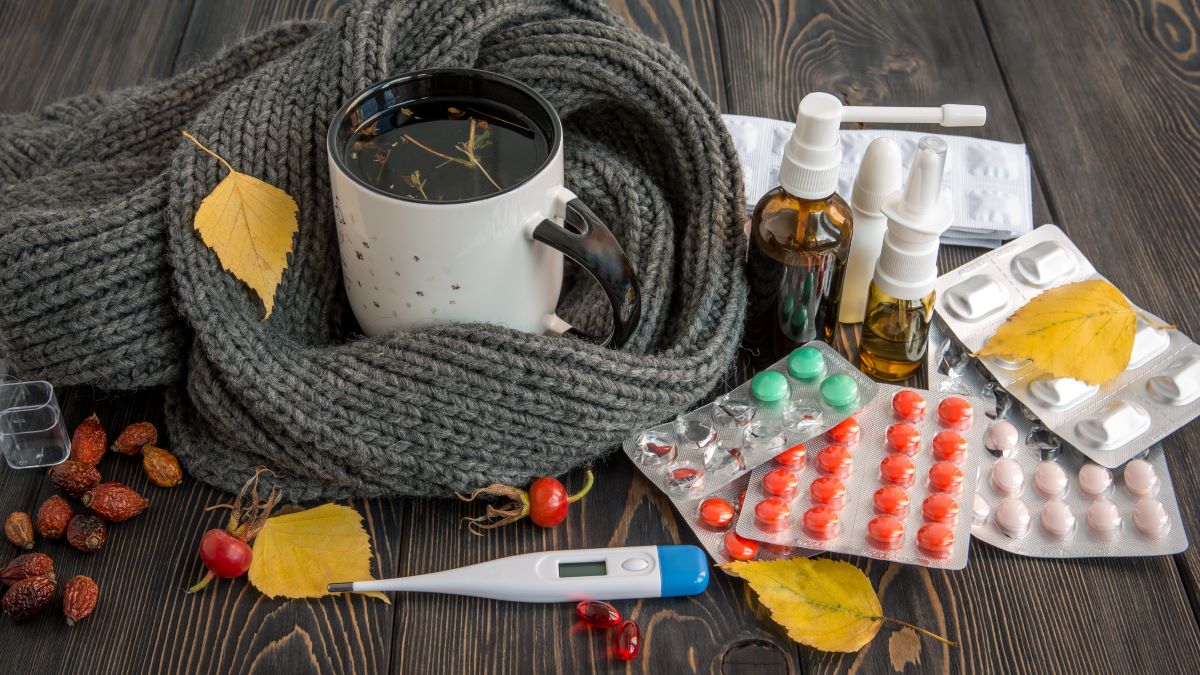
Over-the-Counter Cold Medicine
Most cold and flu remedies are a combination of several ingredients, and the labels can be confusing. In general, try to target the medication you take to your symptoms so that you avoid unnecessary medicine.
Medicine for Congestion or Drainage
Decongestant tablets: pseudoephedrine (better) or phenylephrine (not very effective).
- Decongestant tablets can raise blood pressure, cause a stimulant effect like caffeine, and can interfere with urination if you have baseline difficulty with prostate enlargement.
Antihistamines: most commonly chlorpheniramine, diphenhydramine, or doxylamine
- Although normally used for allergies, in the setting of a cold these medicines work through their side effects of drying out the nose and mouth. These are probably most useful early-on when the mucous is watery and plentiful. These will usually cause drowsiness and may interfere with urination if you are older, so be careful.
Nasal spray: oxymetazoline or phenylephrine
- Nasal spray decongestants are effective, but don’t exceed 3 days of use. If you use them longer then you may experience problems: first the spray will lose its effectiveness and then when you stop using it you’ll experience rebound congestion that was worse than what you had in the first place!
Thick Mucus Medicine
Tough problem! Mucus normally turns thick and greenish-yellow several days into a cold, so don’t be alarmed. Some suggestions for mucus (none of these will be perfect):
- Saline sprays or rinses (like the neti pot or NeilMed irrigation bottle) may help. If you use one of the rinses, use distilled water to avoid rare-but-serious infections from tap water.
- Hot, steamy shower in the morning to loosen everything up
- Guaifenesin may be a little helpful
Cough Medicine
Cough is a tough symptom to suppress; nothing will stop it completely.
- Dextromethorphan (that’s the “DM” of things like “robitussin DM”) has a marginal benefit.
- Lozenges can be useful if the cough is coming from a tickle in the throat
Medicine for Fever and Aches
Acetaminophen (tylenol), naproxen (aleve), or ibuprofen (advil and motrin).
- In general acetaminophen is less likely to cause stomach upset, but be careful that you don’t accidentally overdose on acetaminophen; it’s an ingredient in many different cold and flu remedies, and overdose can be deadly.
Sore Throat Medicine
Lozenges are temporarily helpful, and lozenges/sprays with benzocaine can help numb the throat. Other pain medications like acetaminophen and ibuprofen do not work well for sore throat pain.



